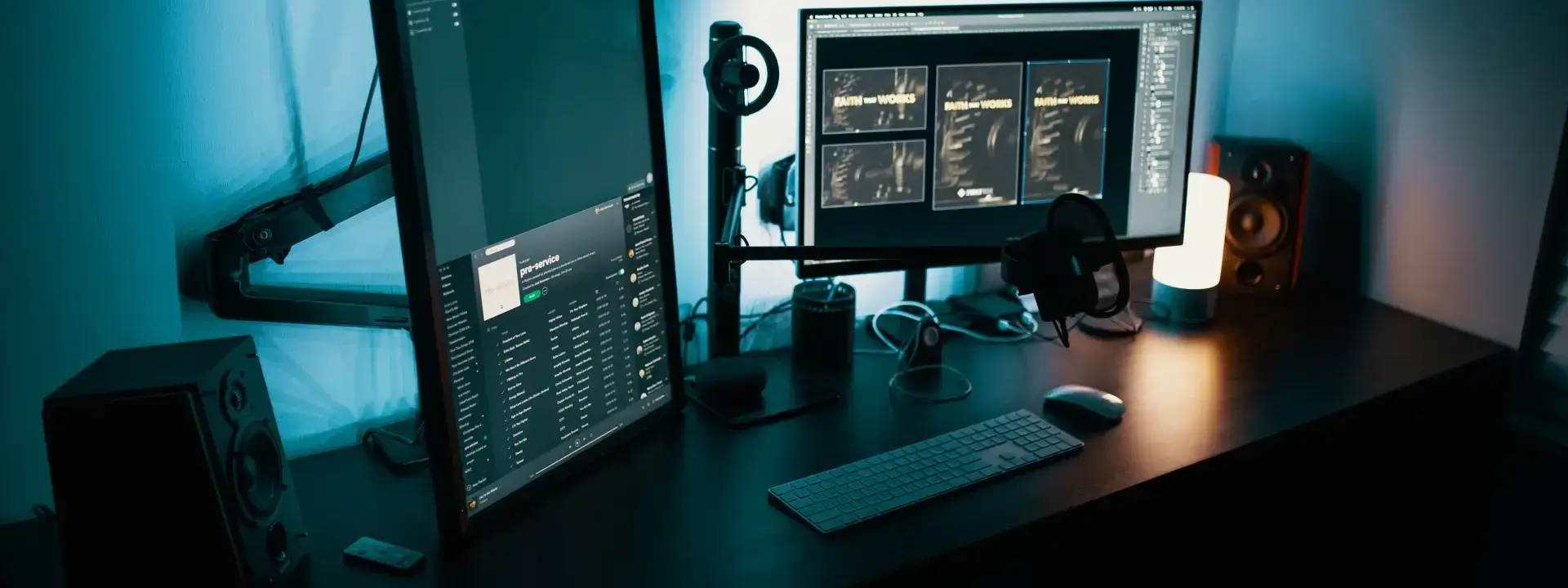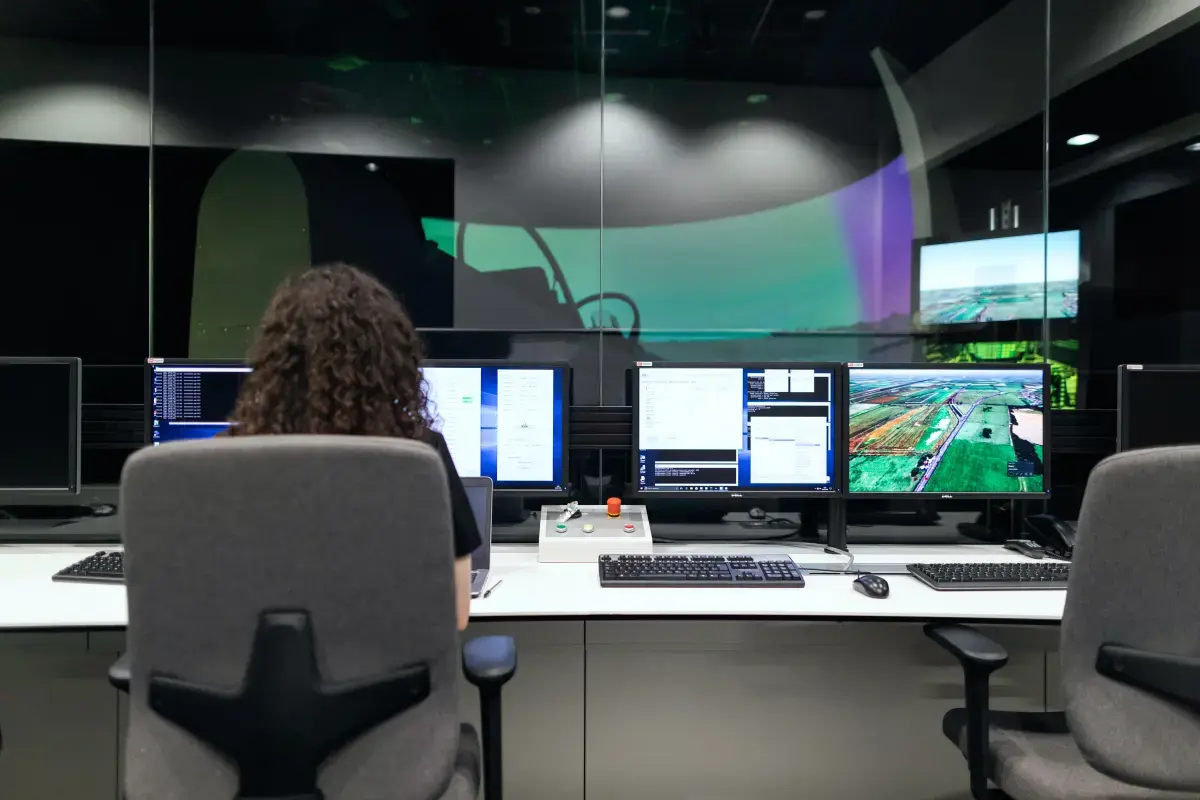
Desktop Support Engineer Job Description
What is a Desktop Support Engineer Professional?
A desktop support engineer is a computer specialist who provides technical assistance and troubleshooting for computer users. They are responsible for ensuring that computer systems are up and running smoothly, and they resolve issues when they arise. Desktop support engineers typically work in an office environment, but they may also travel to customer sites as needed. In their role, desktop support engineers provide Tier 1 and 2 support, meaning they are the first point of contact for users with technical problems.

What does a Desktop Support Engineer Expert do?
They troubleshoot issues remotely or in person, and if necessary, escalate problems to higher-level technicians or IT staff. In some cases, desktop support engineers may also be responsible for training users on new software or hardware applications. Desktop support engineering is a broad field that encompasses many different technologies and platforms. As such, employers typically require candidates to have experience with a variety of systems and products. In addition, strong problem-solving skills are essential in this role, as is the ability to effectively communicate with non-technical users.

What are the Skills of a Desktop Support Engineer?
A desktop support engineer provides technical assistance to computer users. They help resolve issues related to hardware, software, printers, and other peripheral devices. In order to be effective in this role, a desktop support engineer needs certain skills and experience. First and foremost, a desktop support engineer must have strong problem-solving skills. They will encounter many different types of issues on a daily basis, so it is important that they are able to quickly identify the root cause of each issue and find an appropriate solution. Additionally, excellent communication skills are essential for this role.

What makes an Expert Desktop Support Engineer?
Desktop support engineers must be able to clearly explain complex technical concepts to non-technical users. Patience is also important, as some users may be difficult to work with or may require extra assistance understanding how to use certain features. In terms of experience, most employers require that candidates have at least 2 years of experience working in a customer service or technical support role. It is also beneficial if candidates have experience troubleshooting common computer problems such as viruses, malware removal, and printer issues. Familiarity with popular business applications such as Microsoft Office can also be helpful. Finally, although not required, industry certifications such as CompTIA A+ or Network+ can give applicants an edge over the competition when applying for jobs

What level of Experience & Qualifications are required to be a Desktop Support Engineer?
Industry Experience: • At least 1-2 years of experience in providing hands-on technical support for PC hardware and software. • Knowledgeable about networking, operating systems, server technologies, virtualization solutions and IT security best practices. • Familiarity with system/network monitoring tools such as SolarWinds Network Monitor is a plus. Training: • Formal training or certification courses in Microsoft Windows Server Administration, Active Directory Services and VMware vSphere 5 Enterprise Plus are desirable but not required. Qualifications: • Strong problem solving skills to diagnose complex issues quickly and accurately. • Ability to communicate effectively both verbally and written across different levels of the organization including executive management level stakeholders when necessary. • Excellent customer service orientation while maintaining high standards of professionalism during challenging situations with customers or users • Proven ability to work independently or collaboratively within a team environment Education: Bachelor’s degree (or equivalent) in Computer Science or related field preferred

What is the Salary of a Desktop Support Engineer?
Junior Desktop Support Engineer - A junior desktop support engineer typically starts at a salary of around $45,000 to $55,000 per year. These engineers are responsible for providing IT technical support to end-users and should have basic knowledge of computer systems and software. They may troubleshoot hardware or software issues, install applications or upgrade systems, provide user training on how to use new equipment or programs as well as configure networks or perform other maintenance tasks. Intermediate Desktop Support Engineer - An intermediate desktop support engineer usually earns between $50,000 and $70,000 per year depending on the organization they work for and their job responsibilities. At this stage in their career path it is expected that an individual has more experience than those working at the entry level position with greater depth into resolving issues related to networking technologies such as DNS/DHCP setup & management; server configuration; patching strategies; installation & administration of web servers (e.g., Apache); network security measures etc… In addition they will be able handle complex problems while following established procedures & policies when responding to customer service requests by phone & email queries from remote locations using remote control tools such as VNC / RDP etc…. Senior Desktop Support Engineer – As a senior desktop support engineer you can expect your salary range anywhere between 80K–100K+. This role requires experience in managing large scale projects involving multiple stakeholders both internally within the company but also externally with 3rd party vendors like Microsoft OEMs etc… You would need extensive knowledge across operating systems such Windows Server 2008R2+, Linux distributions including Ubuntu / RedHat Enterprise editions plus proficiency in scripting languages like PowerShell / Bash Shell Scripting + C#/.Net programming which enables automation capabilities via development memberships from frameworks like Visual Studio .NET framework 4+ edition suite releases). Also having additional certifications iqual MCSA: Cloud Platform certification could further increase earning potential up towards 105k–115k annually given right circumstances

What are the Working Conditions for a Desktop Support Engineer?
A Desktop Support Engineer is responsible for providing technical assistance to computer users. They typically provide support in person, via phone, or online chat. Their job duties include troubleshooting hardware and software issues on both PCs and Macs; installing new peripherals such as printers and scanners; helping configure networks; setting up user accounts; maintaining antivirus programs; upgrading operating systems and applications when needed; resolving connectivity problems between computers and other devices like smartphones, tablets, etc.; configuring wireless routers/modems/firewalls for secure home networks. The engineer may also need to help train staff on the use of various computer programs or answer basic questions about their PC setup or usage. General working conditions are usually a combination of office-based work (in an IT department) plus remote tasks completed from home with occasional travel required if necessary at clients premises around the country or region where theyre based. Office hours are generally flexible but most engineers will have regular core hours within 9am - 5pm Monday through Friday so that clients can reach them during business time slots rather than needing overnight support intervention outside these timescales (unless it’s an emergency). Most desktop support engineers wear casual attire while on duty although there might be some occasions which require more formal dress code depending upon circumstances such as customer visits by senior management personnel

What are the roles and responsibilities of a Desktop Support Engineer?
Providing technical support for desktop computers and associated software
Analysing and resolving faults, including identifying hardware and software problems
Installing and configuring computing equipment, operating systems and applications
Monitoring performance of computer systems and investigating bottlenecks
Administration of user accounts, permission levels and sharing privileges
Carrying out regular maintenance tasks such as applying updates and security patches
Coordinating with other IT staff to ensure smooth running of network infrastructure
Liaising with vendors to procure replacement parts or resolve technical issues
Creating documentation such as user manuals, How-To guides and troubleshooting FAQs
Training users on new software or hardware products
Acting as the first line of support for IT issues
Resolving technical problems with Local Area Networks (LAN), Wide Area Networks (WAN), printers, modems and email systems
Investigating, diagnosing and solving computer software and hardware faults
Setting up new user accounts, profile creation and managing passwords
Monitoring system performance and troubleshooting potential issues
Coordinating repairs with third-party service providers where necessary
Managing inventory of all equipment, software and licenses
Carrying out regular test backups to ensure data can be recovered in the event of a system failure
ensuring that anti-virus software is up to date and effective across all devices on the network
Writing technical documentation and manuals

Where can I find Desktop Support Engineer jobs?
- Create a profile on gigexchange and promote your Desktop Support Engineer skills to advertise you are Open to New Work Opportunities
- Ensure your Resume (or CV), or online work profile is up to date and represents your skills and experience. Ensure your reputation reflects your ability & attitude.
- Apply for Desktop Support Engineer Jobs advertised on gigexchange.
- Practise Desktop Support Engineer interview techniques to ensure you represent your personality and ability succinctly and confidently.
- Accept the job offer if the salary meets your expectations and the employer mission and purpose reflects your core values.
Jobs
What are the best job boards for PC Support jobs?

How can I hire Desktop Support Engineer staff online for my business?
The best job board for recruiting Desktop Support Engineer experts is gigexchange.com. Advertise full-time, part-time or contract jobs to find, hire & recruit trusted, experienced and talented Desktop Support Engineer candidates near you.

Are Desktop Support Engineer roles in demand in 2026?
Desktop Support Engineer experts are still in high demand in 2026. If you are an experienced Desktop Support Engineer or looking to train and become one. The job market is looking strong for Desktop Support Engineer jobs near me.